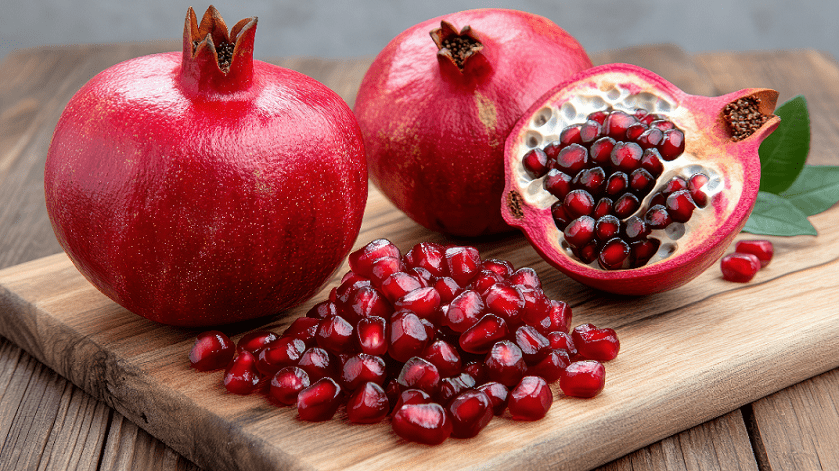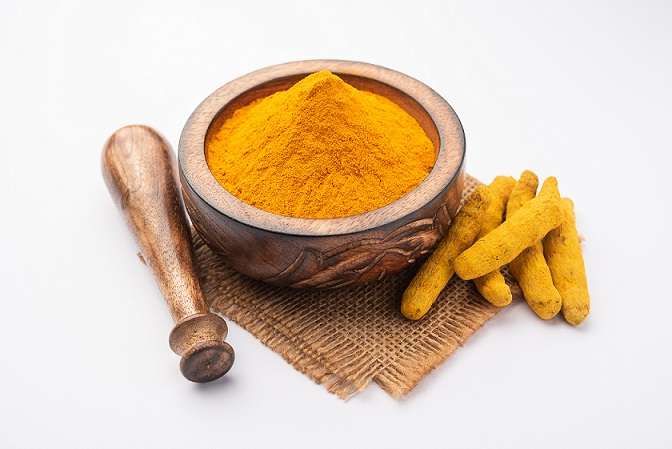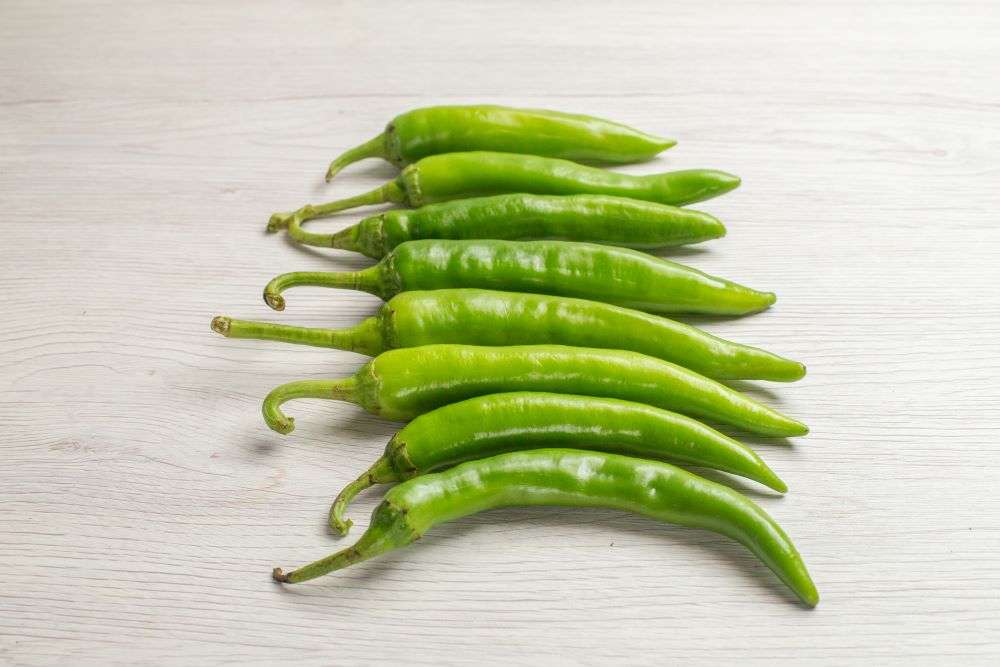India proudly holds its position as a leading force in the global pomegranate market. Often referred to as the “jewel of fruits” within the country, the Indian pomegranate, particularly the Bhagwa variety, is gaining significant traction in international markets. This blog post explores the dynamic landscape of pomegranate exports from India, highlighting key trends, challenges, and opportunities.
India’s Production Prowess
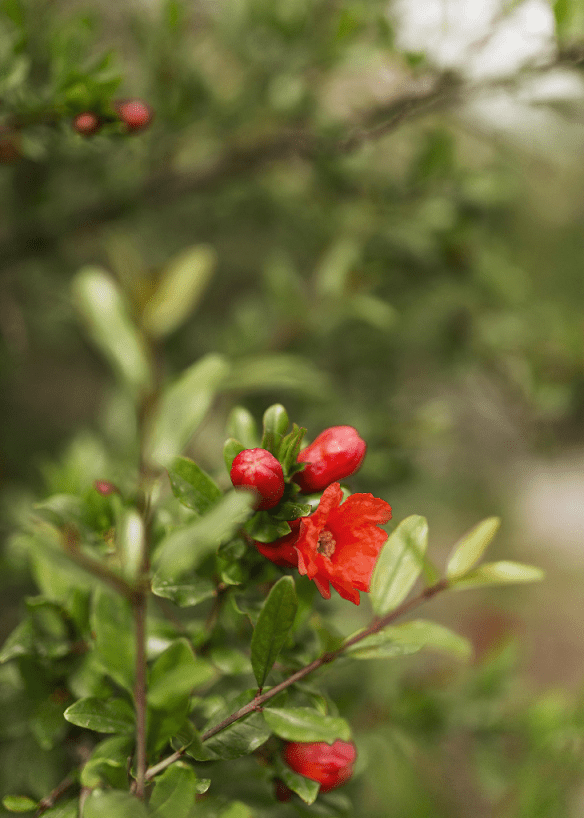
India’s favorable agro-climatic conditions allow for extensive pomegranate cultivation, making it the largest producer globally. Key pomegranate-growing states include Maharashtra, Gujarat, Karnataka, and Andhra Pradesh. Maharashtra leads in both production and export volumes, thanks to its large-scale cultivation of the Bhagwa variety, prized for its sweetness and long shelf life. In 2023, India’s pomegranate production reached 3.06 million tons, showcasing its dominance in the global market.
Export Trends and Destinations
The demand for Indian pomegranates is rising in international markets due to their exceptional quality, rich flavor, and vibrant color. In the fiscal year 2022-2023, India exported approximately 62,280 tons of pomegranates, valued at USD 58.36 million. This figure highlights the growing significance of pomegranate exports to the Indian economy.
– Export Import Data
Key export destinations for Indian pomegranates include:
- Middle East: The Middle East remains the largest market, accounting for over 50% of India’s total pomegranate export volume.
- Europe: Countries like the Netherlands and the United Kingdom are increasingly importing Indian pomegranates.
- Southeast Asia: Markets such as Bangladesh, Nepal, Sri Lanka and Thailand are showing increased demand.
- North America: The United States, particularly California, is a growing market, driven by the rising demand for healthy foods.

Logistics and Cold Chain Management
Ensuring freshness during export is a major challenge. Companies like Indo Foods Export employ advanced cold chain logistics to maintain optimal temperature and humidity throughout the supply chain.
Key Logistics Strategies
- Pre-cooling: Pomegranates undergo rapid cooling post-harvest to retain freshness.
- Modified Atmosphere Packaging (MAP): Reduces oxidation and extends shelf life.
- Refrigerated Containers: Maintain 5-7°C during transit to prevent spoilage.
Sustainability and Eco-Friendly Practices
With growing concerns about climate change, Indian exporters are adopting sustainable farming and packaging solutions.
Sustainable Initiatives
- Water-efficient irrigation: Drip irrigation minimizes water usage.
- Biodegradable packaging: Reduces plastic waste in exports.
- Carbon footprint reduction: Optimized transportation routes lower emissions.
Government Support and Initiatives
The Indian government is actively promoting the export of fresh fruits and vegetables, including pomegranates, recognizing their potential to contribute significantly to the agricultural economy. Several key initiatives are in place to bolster this sector:
- Export Subsidies: Providing financial incentives to exporters to enhance their competitiveness in international markets.
- Quality Certification Programs: Supporting and implementing stringent quality control and certification programs to meet international food safety standards.
- Development of Sea Protocols: Investing in research and infrastructure to facilitate efficient and cost-effective sea freight for long-distance destinations, as demonstrated by the successful shipments to the United States.
The Agricultural and Processed Food Products Export Development Authority (APEDA) plays a pivotal role in facilitating these exports by providing market intelligence, financial assistance, and guidance on export procedures.
Efforts are also underway to develop crucial infrastructure, including modern packhouses and irradiation facilities, to maintain the quality and extend the shelf life of exported pomegranates. Capacity building programs aimed at training farmers and exporters on international best practices are also being actively promoted. Furthermore, the government is actively engaged in market access initiatives, negotiating favorable trade agreements and participating in international trade fairs to showcase Indian agricultural produce.
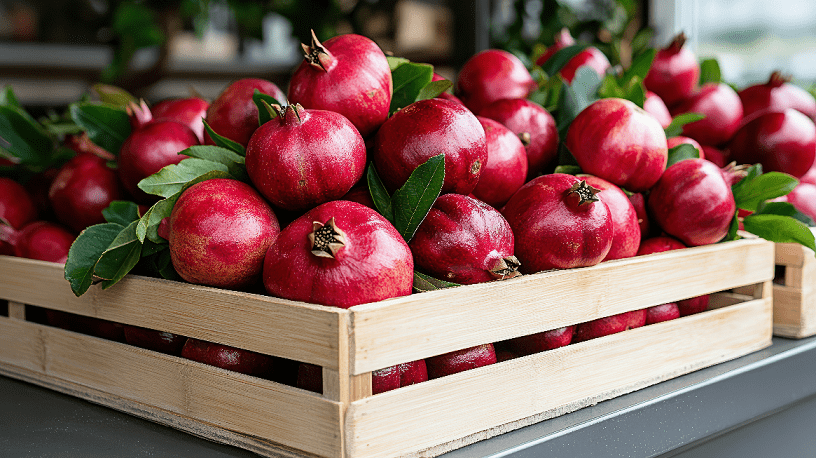
Challenges and Opportunities
Despite its strong position, the Indian pomegranate export industry faces certain challenges:
- Quality Control: Maintaining consistent quality to meet strict international standards, particularly in the European Union, is crucial.
- Cold Chain Infrastructure: Inadequate cold chain facilities can lead to post-harvest losses and affect the quality of exported fruit.
- Regulatory Hurdles: Meeting the diverse regulatory standards of importing countries, especially concerning certifications and pesticide usage, can be complex.
However, significant opportunities exist for growth:
- Value Addition: Processing pomegranates into products like juice, arils, or concentrate can enhance export value.
- Emerging Markets: Exploring new markets in Asia and North America can further expand India’s export reach.
- Strategic Partnerships: Collaborating with international distributors and retailers can streamline the export process.
The Bhagwa Variety: A Key Export
The Bhagwa variety stands out as a particularly significant contributor to India’s pomegranate exports. Its distinctive deep red color, appealingly sweet taste with a hint of tartness, soft and edible seeds, and remarkable long shelf life make it a preferred choice among international consumers and retailers alike. The successful shipment of the Bhagwa variety to demanding markets like the United States via sea freight is a testament to its quality and the advancements in post-harvest handling and logistics. Ongoing research and development efforts are focused on further enhancing the Bhagwa variety’s yield, disease resistance, and post-harvest attributes. The potential for commanding premium pricing for high-quality Bhagwa pomegranates in discerning international markets is substantial.
Indo Foods Export: Contributing to the Growth
Indo Foods Export, like many other Indian companies, plays a vital role in connecting Indian pomegranate growers with global markets. By ensuring quality and adhering to international standards, we contribute to the increasing reputation of Indian pomegranates worldwide.
India’s pomegranate export sector is set for continued growth. By addressing existing challenges, capitalizing on emerging opportunities, and maintaining a focus on quality, India can further solidify its position as the “jewel” of the global pomegranate market. The increasing demand for healthy and nutritious fruits worldwide presents a promising future for Indian pomegranate exports.

